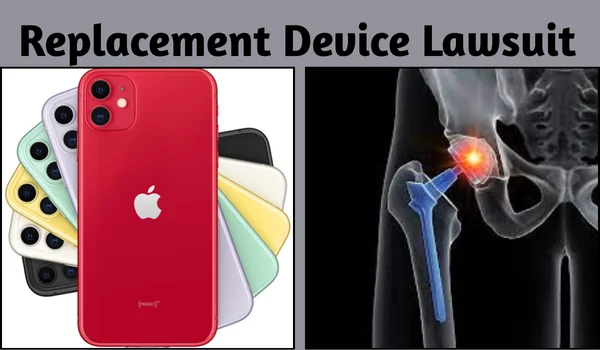The term “Replacement Device Lawsuit” has gained prominence, particularly in the context of class-action settlements involving major corporations like Apple. These lawsuits typically arise when companies provide consumers with replacement devices that are refurbished or contain used parts, contrary to their advertised promises of offering “new or equivalent to new” products. This article delves into the details of such lawsuits, focusing on notable cases and their implications for consumers.
AppleCare Replacement Device Lawsuit: A Landmark Case

One of the most significant cases in this domain is the class-action lawsuit against Apple Inc., which alleged that the company provided refurbished or remanufactured devices as replacements under its AppleCare and AppleCare+ programs. Consumers contended that Apple misrepresented the quality of replacement devices, leading them to believe they were receiving new products.
Key Developments:
- Settlement Agreement: In April 2022, the court granted final approval to a $95 million settlement to resolve claims that Apple violated consumer laws by charging its customers premium prices for protection and replacement plans, known widely as AppleCare/AppleCare+. Consumers were allegedly led to believe that the program offered comparable replacement devices, but were instead given refurbished, lesser-valued products .
- Payment Distribution: Payments began rolling out in January 2024, with many consumers receiving checks for approximately $14 per eligible device. Some individuals reported receiving additional payments, effectively doubling the initial amount .
- Consumer Reactions: While the settlement provided compensation to affected consumers, many expressed dissatisfaction with the amount received, considering it insufficient compared to the perceived value of the replacement devices.
Other Noteworthy Replacement Device Lawsuits
Beyond the AppleCare case, several other lawsuits have highlighted issues related to replacement devices:
- Medical Device Failures: Lawsuits have been filed against manufacturers of medical devices, such as hip and knee replacements, alleging that certain devices were defective and caused harm to patients. For instance, a lawsuit in Australia claimed that a jaw replacement device had inherent defects leading to severe pain and nerve damage .
- Automotive Instrument Clusters: General Motors faced a class-action lawsuit concerning defective instrument clusters in certain vehicle models. The settlement allowed affected vehicle owners to get their instrument clusters replaced under specific terms, addressing issues like erratic speedometer readings.
Implications for Consumers
These lawsuits underscore the importance of transparency and honesty in product representations. Consumers who purchase extended warranty plans or medical devices expect to receive products that meet certain standards of quality and performance. When companies fail to uphold these standards, legal actions can serve as a mechanism for accountability and compensation.
Conclusion
The “Replacement Device Lawsuit” serves as a critical reminder for both consumers and manufacturers about the importance of adhering to advertised promises and maintaining product quality. While legal settlements can provide compensation to affected individuals, they also highlight the need for companies to ensure that their products and services meet the expectations set forth in their marketing and contractual agreements.

 Oliver Johnson is LawScroller’s Senior Legal Correspondent specializing in civil litigation, class actions, and consumer lawsuit coverage. He breaks down complex settlements and court decisions into clear, practical guidance for readers.
Oliver Johnson is LawScroller’s Senior Legal Correspondent specializing in civil litigation, class actions, and consumer lawsuit coverage. He breaks down complex settlements and court decisions into clear, practical guidance for readers.